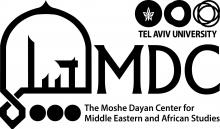Abstract:
The Madrid multilateral conference commenced in November 1991 and was the first instance of broader Arab–Israeli discussions on a wide range of issues. The talks focused on five areas in particular: water, the environment, arms control, economics, and refugees. Gulf Cooperation Council (GCC) states as well as Maghreb states – Morocco, Tunisia, and Algeria – took part in the multilateral discussions. Shortly after, Israel and the Palestine Liberation Organization (PLO) signed the Declaration of Principles (DOP) – better known as the Oslo Accords – and in 1994 the Israeli–Jordanian Peace Treaty was concluded. These important historical events paved the way for a series of partial normalization of relations agreements between Israel and peripheral Arab countries that took place during the mid-1990s. Due to the rising tensions stemming from the Second Intifada, the peripheral Arab states severed all diplomatic relations with Israel by October 2000. While accepting the importance of the DOP and the Israeli–Jordanian Peace Treaty, the purpose of this research is to analyse the link between the Madrid multilateral negotiations and the process of semi-normalization that occurred between Israel and the peripheral Arab states in the 1990s. The working hypothesis is that the multilateral negotiations established the necessary mechanisms that enabled the normalization agreements to take place.
*The opinions expressed in MDC publications are the authors’ alone.








